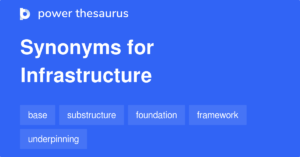What is Agora School? A New Way of Learning
Education has always been essential to society, shaping how young people view the world and themselves. But what if there was a school that turned traditional education on its head? Imagine a place without classrooms, strict schedules, or standardized tests. This place exists, and it’s called the Agora School.
Agora School, founded in the Netherlands, is a revolutionary educational model that aims to foster students’ creativity, independence, and critical thinking. This unique learning environment has caught the attention of educators, parents, and students worldwide. In this article, we’ll explore what makes Agora School so different, how it works, and why it might just be the future of education.
The Origins of Agora School
Agora School was founded 2014 by Niekée Roermond, a secondary school in the Dutch city of Roermond. The goal was to rethink education from the ground up. Instead of traditional subjects and strict timetables, Agora focuses on personalized learning experiences. Inspired by the agora in ancient Greece, a public space for open dialogue and learning, the school embraced a flexible, student-centered approach.
The Philosophy Behind Agora School
The core belief at Agora School is that learning should be natural and self-driven. Students, known as “learners” here, are encouraged to follow their interests and passions. This school focuses on developing 21st-century skills like collaboration, problem-solving, and digital literacy. Agora believes that allowing students to explore what they truly care about makes them more engaged and enthusiastic about learning.
How Agora School Works
Agora School takes a highly innovative approach to education. Here’s how it works:
- No Classes: Instead of dividing learners by age or grade level, students of all ages learn together. They work on projects based on their interests rather than following a curriculum.
- Project-Based Learning: Students at Agora work on long-term projects rather than sitting through lectures. These projects can be about anything that sparks their curiosity, from building a robot to writing a novel.
- Coaches, Not Teachers: At Agora, there are no teachers in the traditional sense. Instead, some coaches guide students through their learning journey. These coaches don’t provide answers but help students figure things out for themselves.
- Learning Spaces, Not Classrooms: The school building is designed to be an open and flexible environment. There are no typical classrooms; students have access to various spaces suited to different activities, such as workshops, computer labs, and quiet zones.
Key Features of Agora School
Agora School’s approach is unique and designed to foster independent thinkers. Let’s explore some of the most important features that set Agora apart from traditional schools:
- Personalized Learning Paths
At Agora School, every student has their learning path. This means that everyone follows only one curriculum. Instead, each learner sets goals and decides what they want to work on. Coaches help them by suggesting resources, guiding them through challenges, and encouraging them to think critically.
- Focus on Real-World Skills
Agora School prepares students for life, not just exams. The school emphasizes skills that are essential in today’s world, such as:
- Communication Skills: Learners are encouraged to discuss, present, and defend their ideas.
- Collaboration: Students often work together on projects, learning to navigate teamwork and share responsibilities.
- Critical Thinking: By working on projects, learners develop the ability to analyze, question, and evaluate information.
- Digital Literacy: Technology plays a big role in learning at Agora School, helping students become comfortable with digital tools and resources.
- No Grades or Exams
Agora School has eliminated grades and exams. Instead of being evaluated by test scores, students receive feedback from their coaches. This feedback helps them understand their strengths and areas for improvement without the pressure of traditional grades. This approach encourages students to learn for learning, not just to pass a test.
The Role of Coaches at Agora School
In traditional schools, teachers are the authority figures responsible for delivering content and grading students. At Agora School, however, coaches play a very different role. Coaches are there to guide, support, and motivate learners. They act as mentors rather than instructors, helping students set goals and plan their projects.
How Coaches Help Learners
- Setting Goals: Coaches help learners set achievable, challenging, and engaging goals.
- Resource Guidance: They suggest books, online courses, and other resources to help students with their projects.
- Problem-Solving: When learners face obstacles, coaches help them brainstorm solutions rather than giving them the answers.
- Emotional Support: Coaches also provide emotional support, helping students build confidence and resilience.
Why Parents Choose Agora School for Their Children
The decision to send a child to Agora School can be big. Here are some of the reasons why parents choose Agora School:
- A Focus on Individual Growth
Parents often appreciate that Agora School focuses on each child’s strengths and interests. The school doesn’t try to fit students into a one-size-fits-all model. Instead, it encourages them to explore what makes them unique.
- Less Stress and Pressure
Traditional schools can be stressful for students, with constant tests, homework, and grades. Agora School removes much of this pressure by allowing students to learn at their own pace and in their way. Many parents find this approach makes their children happier and more motivated to learn.
- Preparation for the Future
With its focus on real-world skills, Agora School prepares students for a constantly changing future. By teaching students how to think critically, work in teams, and use technology effectively, the school aims to prepare them for whatever careers they pursue.
A Day in the Life of an Agora School Student
To understand what makes Agora School unique, let’s examine a typical day for a student here.
- Morning Check-In: The day begins with a check-in session where students discuss their plans with their coach. This helps them set goals for the day and get feedback.
- Project Work: Students then dive into their projects. Some may work on a science experiment, others might program a game, and some might write a research paper.
- Collaboration Time: During the day, students often work in groups. They could be working on a shared project or simply discussing ideas and giving each other feedback.
- Reflection and Feedback: At the end of the day, students reflect on what they’ve learned and discuss their progress with their coach. This helps them think critically about their learning journey.
The Benefits of Project-Based Learning at Agora School
One of the core aspects of Agora School is its commitment to project-based learning. Unlike traditional education, which often separates subjects, project-based learning integrates various skills and disciplines. Let’s explore some of the benefits:
- Increased Engagement
Students who work on projects that interest them are more likely to stay engaged. This engagement leads to deeper learning and helps students retain information better.
- Real-World Relevance
Projects are often related to real-world issues, which helps students see the value of their strengths. For example, a student interested in environmental science might work on a project about renewable energy.
- Development of a Wide Range of Skills
Project-based learning teaches skills and helps students develop life skills like time management, organization, and perseverance.
Challenges of the Agora School Model
While Agora School has many benefits, it’s not without its challenges. Here are some of the potential downsides:
- Not for Every Student
Some students thrive in structured environments with clear expectations and routines. The freedom at Agora School might feel overwhelming to those who prefer a more traditional approach.
- Resource-Intensive
Because students work on individual projects, they need access to a wide range of resources. This can be challenging for schools to provide, especially regarding technology and materials.
- Transitioning to Higher Education
Since Agora School doesn’t use grades or standardized tests, students might face challenges when applying to universities that require these metrics. However, Agora works with students to create portfolios and personal statements that showcase their skills.
The Global Impact of Agora School
Agora School has sparked a global conversation about the future of education. Schools in various countries have started to adopt elements of the Agora model, inspired by its success in the Netherlands. As more educators, parents, and policymakers learn about Agora, its influence grows.
The Spread of Agora-Like Models
Several countries are experimenting with Agora-inspired models:
- United States: Some schools have started implementing project-based learning and flexible curriculums.
- United Kingdom: There is growing interest in personalized learning paths and reducing standardized testing.
- Australia: Schools are beginning to focus more on digital literacy and real-world skills, similar to Agora’s approach.
CouldAgora’sSchool Be the Future of Education?
The Agora School model is undoubtedly innovative, challenging traditionait’seas about what education should look like. While it may not be suitable for everyone, its success demonstrates that there are alternative ways to engage and educate young people. As society changes, the need for adaptable, creative, and independent thinkers will only grow. Agora School is preparing its students for this future by teaching them facts and how to learn.
Final Thoughts on Agora School
In conclusion, Agora School offers a refreshing and optimistic look at education. FocusingFocusing on personalized learning, project-based experiences, and real-world skills provides students with an environment where they can truly thrive. While it may not replace traditional schools everywhere, its influence is already reshaping educational practices worldwide. Whether you’re a parent, student, or creator, there’s much to learn from the School model about how we can all think differently about education.
Agora School is leading the way in this educational revolution, inspiring schools worldwide to rethink what it means to learn. As more people learn about this unique approach, the future of education looks bright and full of possibilities.
If you’re curious about Agora and want to learn more, consider visiting their website or contacting schools in your area that offer similar programs. It might just be the change you want in your education, youney.








Post Comment